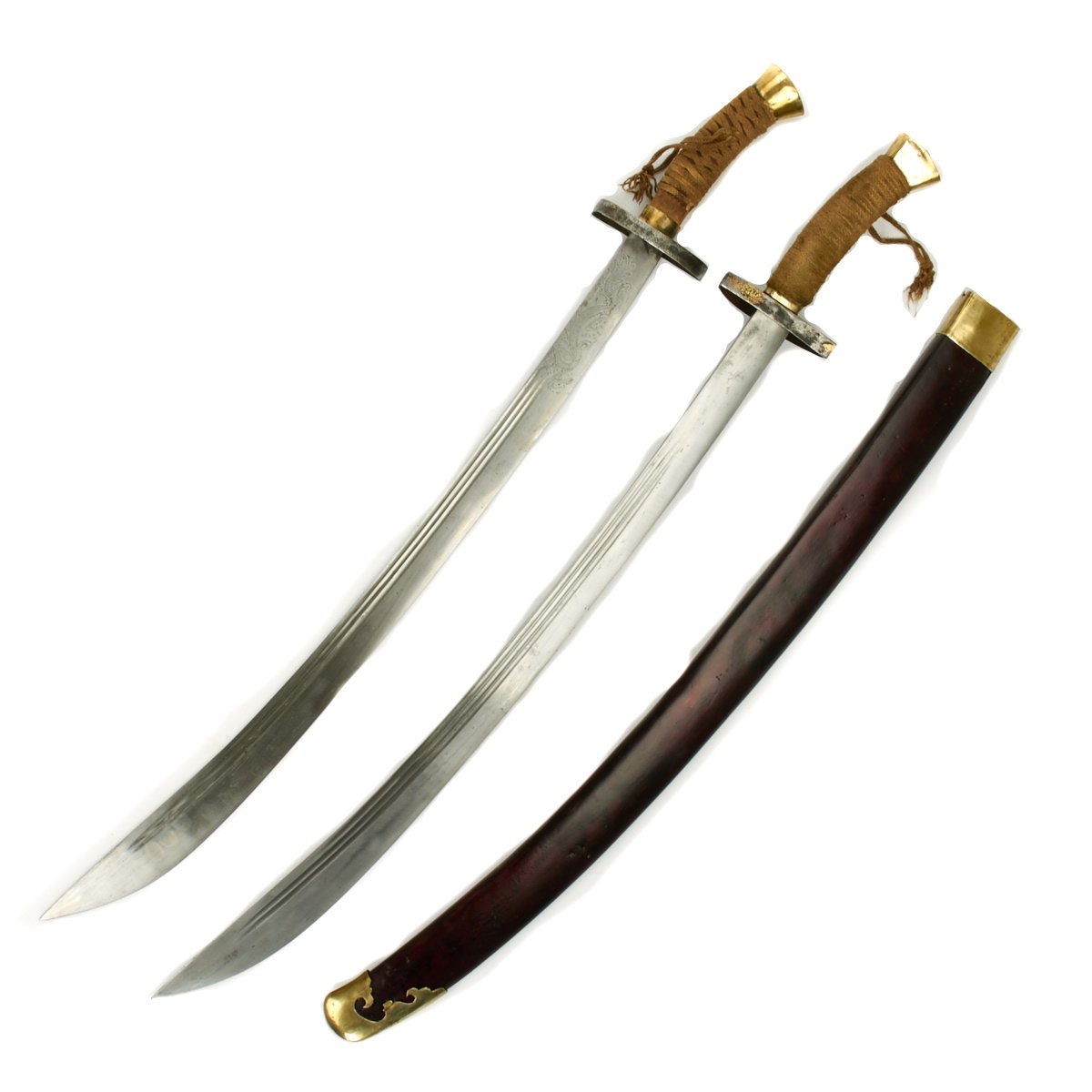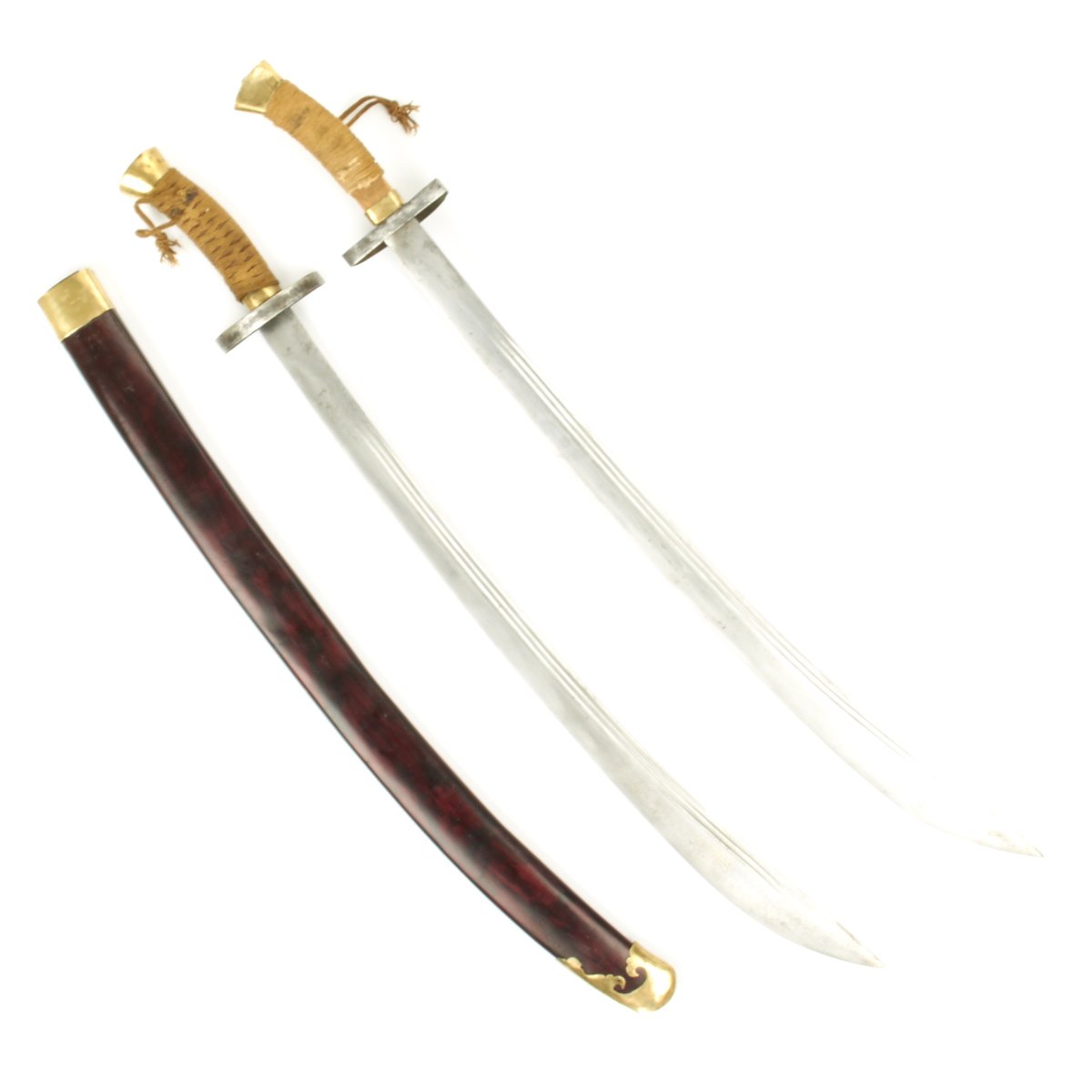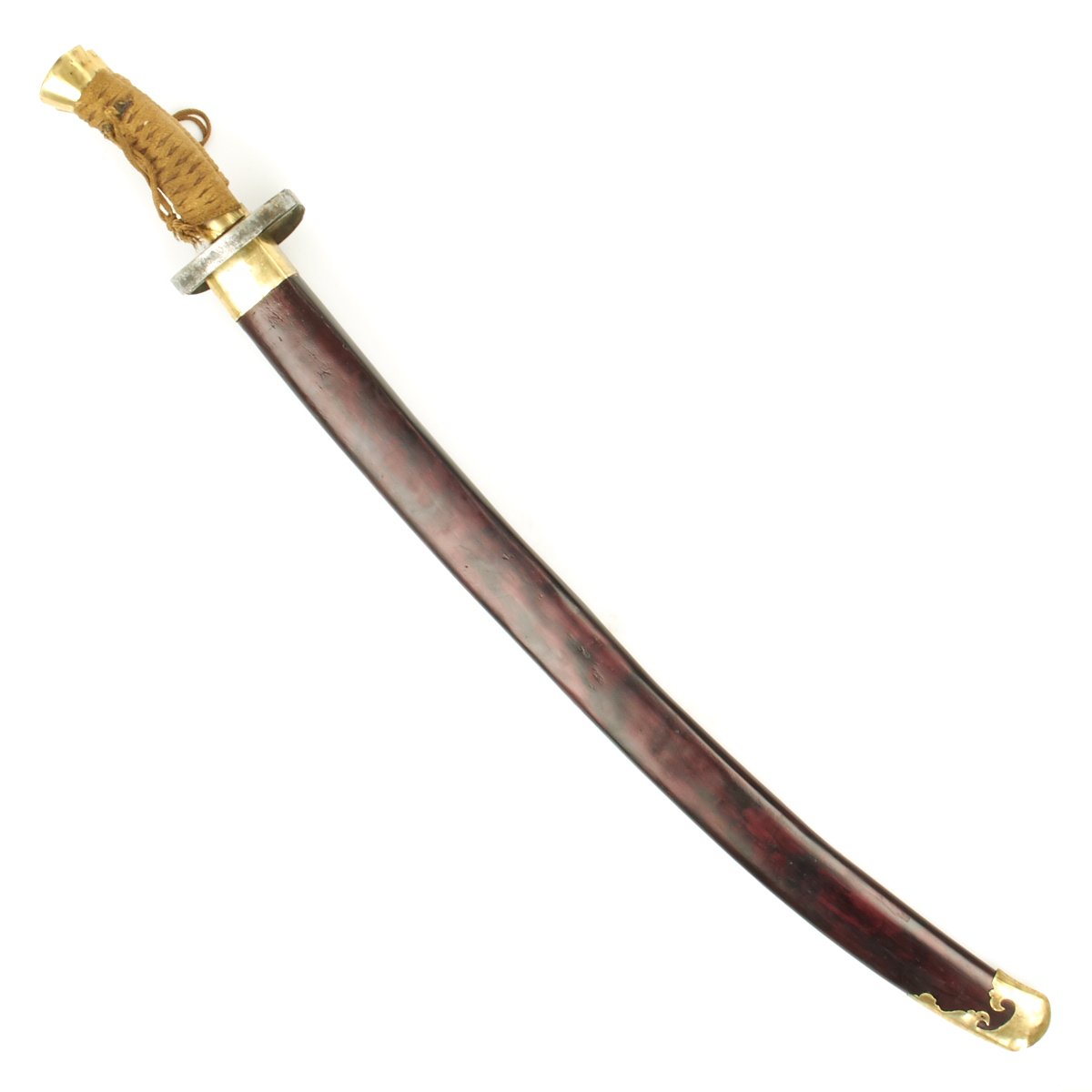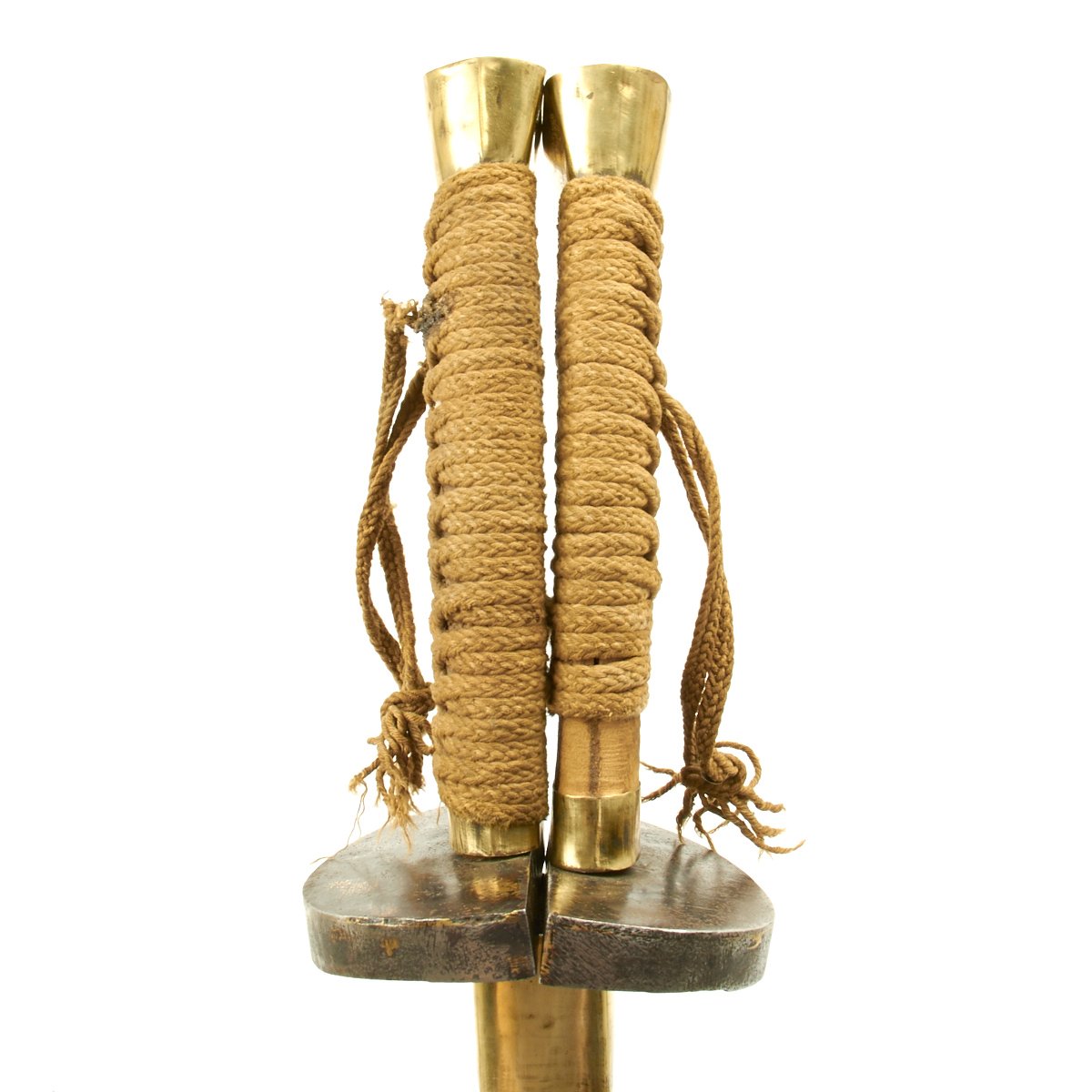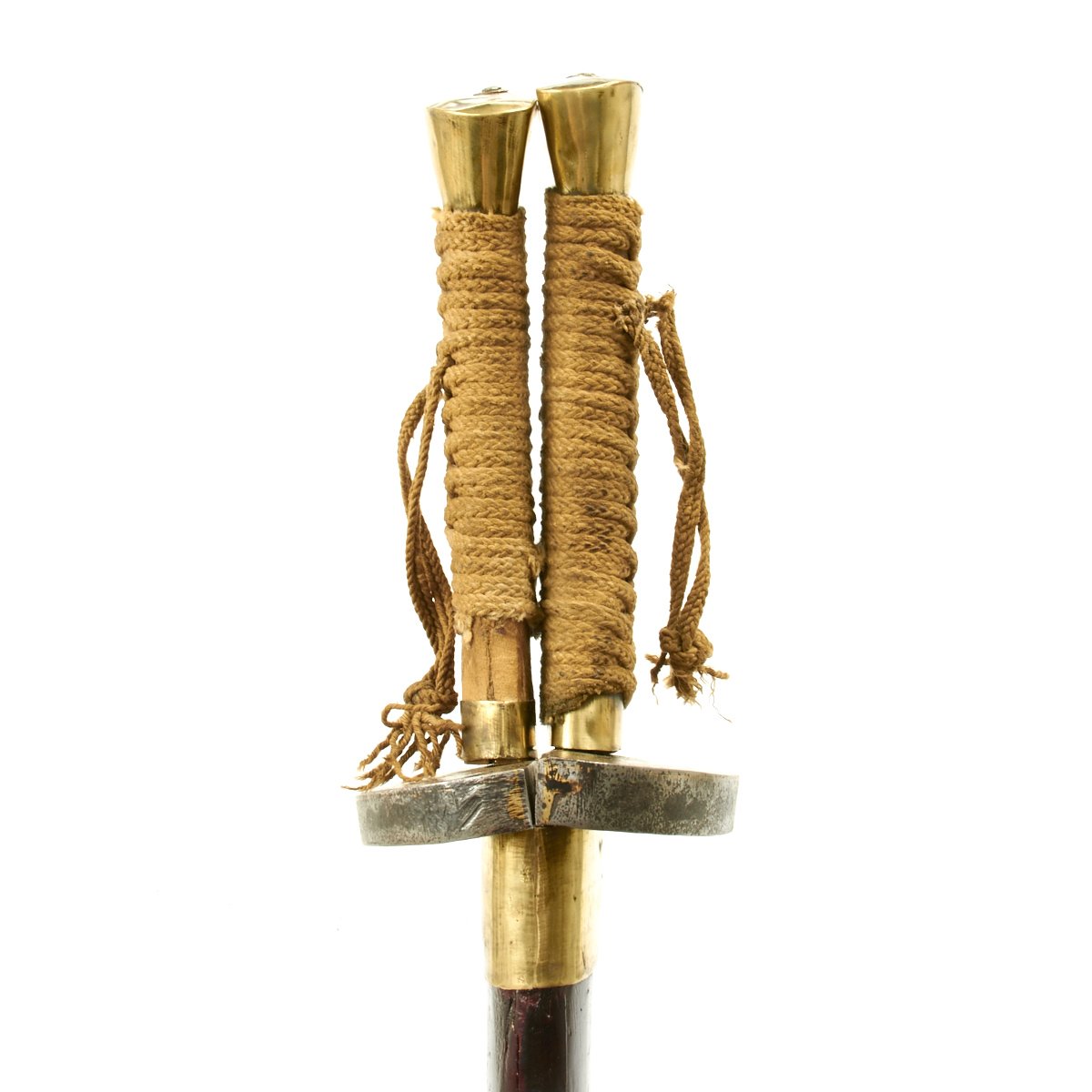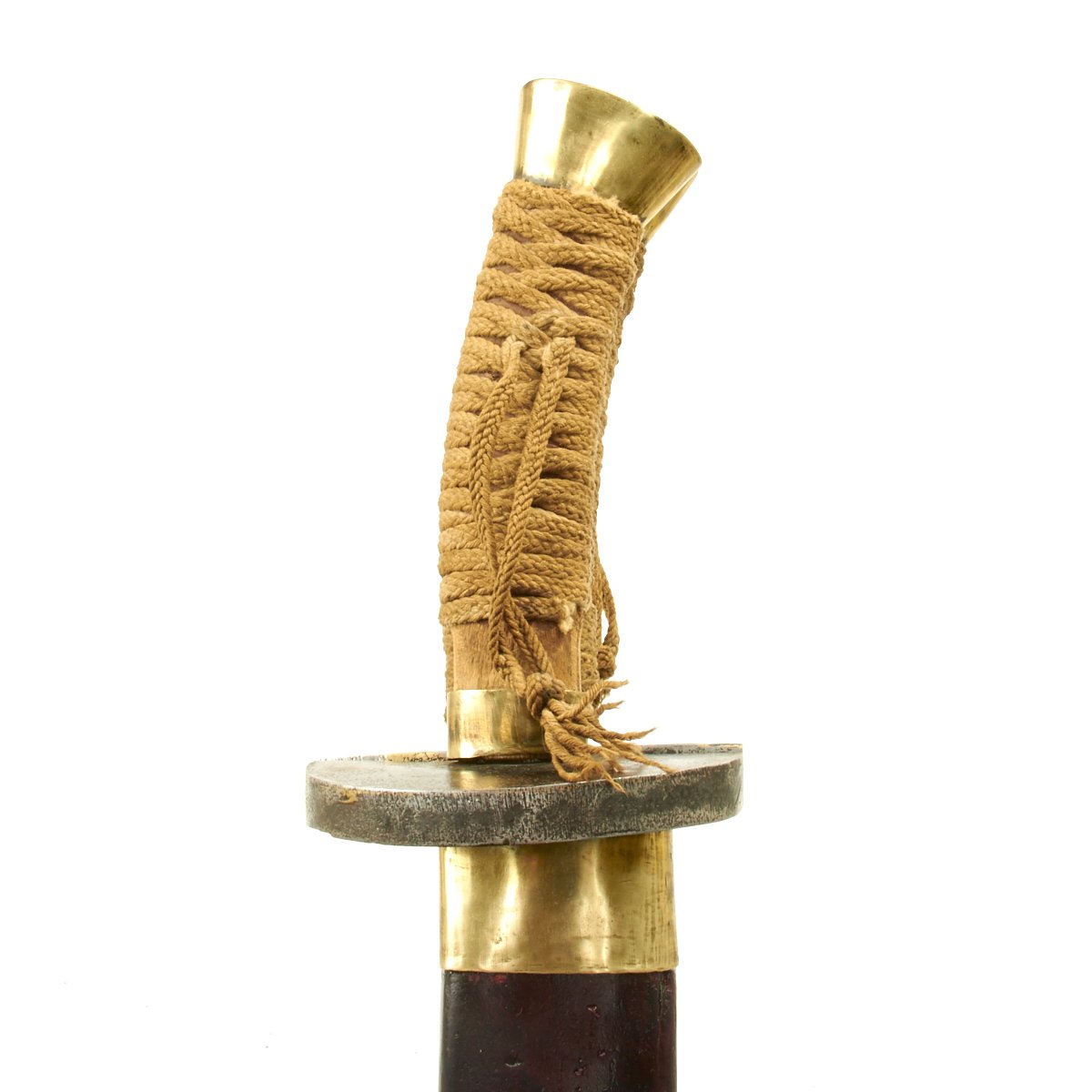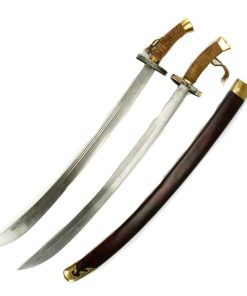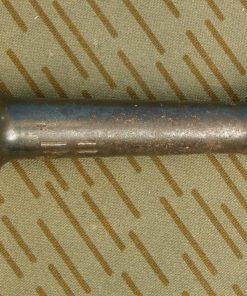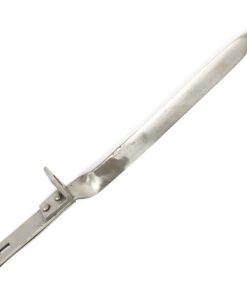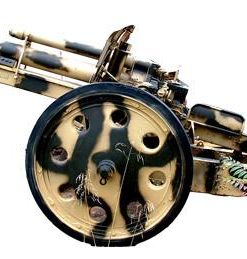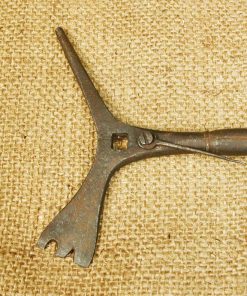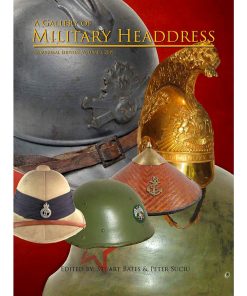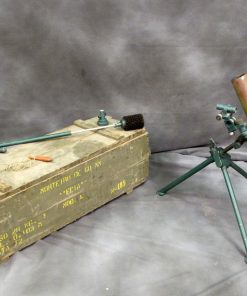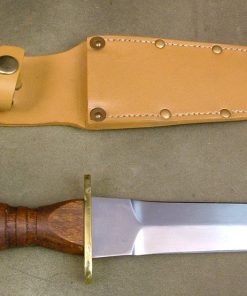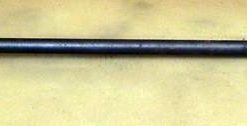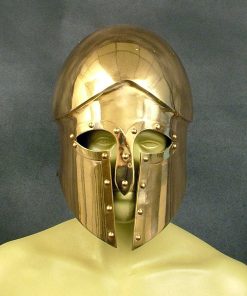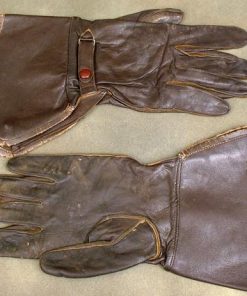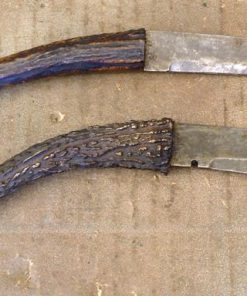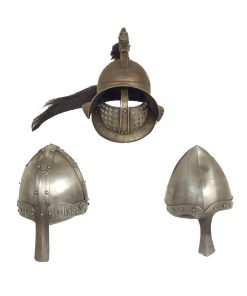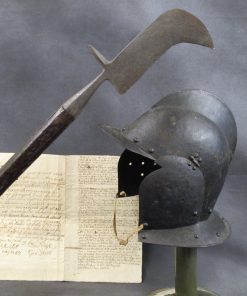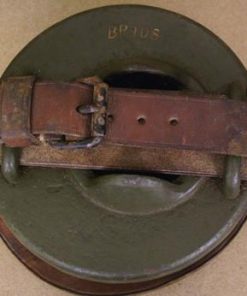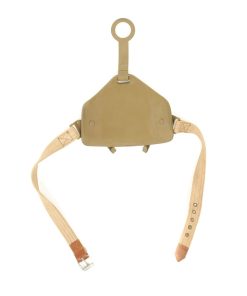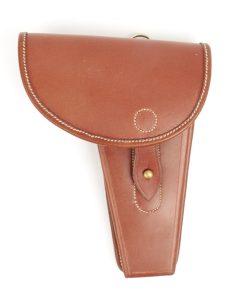Original Boxer Rebellion Chinese Double Dao Broadswords with scabbard – Circa 1900 Original Items
$ 795,00 $ 238,50
Original Item: Only One Pair Available. The Dao (Traditional Chinese: 刀; Cantonese: Dou) is a single-edged Chinese sword, primarily used for slashing and chopping, used in various forms for thousands of years in China. In China, the dao is considered one of the four traditional weapons, along with the gun (stick or staff), qiang (spear), and the jian (sword). They can be referred to as “Chinese Sabers”, though wider-bladed examples such as these are called “Chinese Broadswords.” The earliest examples date back to the Shang Dynasty during China’s Bronze Age, and as such were made of bronze. These were known as zhibeidao (直背刀) – straight backed knives, and the original name could refer to blades of various different lengths.
Dao blades are generally moderately curved and single-edged, though often with a few inches of the back edge sharpened as well; the moderate curve allows them to be reasonably effective in the thrust. Hilts are sometimes canted, curving in the opposite direction as the blade which improves handling in some forms of cuts and thrusts. Cord is usually wrapped over the wood of the handle. Hilts may also be pierced like those of jian (straight-bladed Chinese sword) for the addition of lanyards, though modern swords for performances will often have tassels or scarves instead. Guards are typically disc-shaped often with a cupped shape to prevent rainwater from getting into the sheath, and to prevent blood from dripping down to the handle, making it more difficult to grip.
We recently acquired a small collection of Boxer Rebellion items, brought back after the 1900 Rebellion by British Soldiers and brought back to England as War Trophies, and put into a regimental museum. From this collection comes this magnificent set of matched Dao Broadswords, fitted into a single lacquer-covered scabbard with brass mounts. Each weighs about 1.7lbs, and the blades are 30 inches long, with an overall length of 37 inches. The cupped crossguards are typical of this type of sword, and are shaped as a matching pair to fit in the same scabbard. They also bear matching dragon designs engraved on the body of the blades near the hilt.
These are most unusual and it is not hard to imagine some massive Boxer Warrior bearing down on you with one of these massive broadswords in each hand. In great condition having been on display for well over 100 years, slight loss of grip cord binding to one hilt otherwise just about perfect . Wonderful muted red color to scabbard lacquer, truly an old Chinese technique. Totally original ready to display, exceptionally rare, Pair.
The Boxer Rebellion, Boxer Uprising or Yihetuan Movement was a violent anti-foreign, anti-colonial, and anti-Christian uprising that took place in China between 1899 and 1901, towards the end of the Qing dynasty. It was initiated by the Militia United in Righteousness (Yihetuan), known in English as the “Boxers”, and was motivated by proto-nationalist sentiments and opposition to Western colonialism and associated Christian missionary activity.
The uprising took place against a background of severe drought and the disruption caused by the growth of foreign spheres of influence. After several months of growing violence against both the foreign and Christian presence in Shandong and the North China plain in June 1900, Boxer fighters, convinced they were invulnerable to foreign weapons, converged on Beijing with the slogan “Support the Qing government and exterminate the foreigners.” Foreigners and Chinese Christians sought refuge in the Legation Quarter. In response to reports of an armed invasion to lift the siege, the initially hesitant Empress Dowager Cixi supported the Boxers and on June 21 issued an Imperial Decree declaring war on the foreign powers. Diplomats, foreign civilians and soldiers as well as Chinese Christians in the Legation Quarter were placed under siege by the Imperial Army of China and the Boxers for 55 days.
Chinese officialdom was split between those supporting the Boxers and those favoring conciliation, led by Prince Qing. The supreme commander of the Chinese forces, the Manchu General Ronglu (Junglu), later claimed that he acted to protect the besieged foreigners. The Eight-Nation Alliance, after being initially turned back, brought 20,000 armed troops to China, defeated the Imperial Army, and arrived at Peking on August 14, relieving the siege of the Legations. Uncontrolled plunder of the capital and the surrounding countryside ensued, along with the summary execution of those suspected of being Boxers.
The Boxer Protocol of 7 September 1901 provided for the execution of government officials who had supported the Boxers, provisions for foreign troops to be stationed in Beijing, and 450 million taels of silver (approximately $10 billion at 2017 silver prices and more than the government’s annual tax revenue) to be paid as indemnity over the course of the next thirty-nine years to the eight nations involved. The Empress Dowager then sponsored a set of institutional and fiscal changes in an attempt to save the Dynasty by reforming it.
Fast Shipping with Professional Packaging
Thanks to our longstanding association with UPS FedEx DHL, and other major international carriers, we are able to provide a range of shipping options. Our warehouse staff is expertly trained and will wrap your products according to our exact and precise specifications. Prior to shipping, your goods will be thoroughly examined and securely secured. We ship to thousands clients each day across multiple countries. This shows how we're dedicated to be the largest retailer on the internet. Warehouses and distribution centres can be located throughout Europe as well as the USA.
Note: Orders with more than one item will be assigned a processing date depending on the item.
Before shipping before shipping, we'll conduct a thorough inspection of the items you have ordered. Today, the majority of orders will be delivered within 48 hours. The delivery time will be between 3-7 days.
Returns
The stock is dynamic and we cannot completely manage it because multiple stakeholders are involved, including our factory and warehouse. So the actual stock may alter at any time. It's possible that you may not receive your order once the order has been made.
Our policy is valid for a period of 30 days. If you don't receive the product within 30 days, we are not able to issue a refund or an exchange.
You can only return an item if it is unused and in the same state as the day you received it. You must have the item in its original packaging.
Related products
Uncategorized
Uncategorized
Uncategorized
Band of Brothers ORIGINAL GERMAN WWII Le. F.H. 18 10.5cm ARTILLERY PIECE Original Items
Uncategorized
Uncategorized
Uncategorized
Uncategorized
Uncategorized
Uncategorized
Angolan Rebel 1970s era 60mm Inert Display Mortar from Angolan Civil War Original Items
Uncategorized
Uncategorized
Uncategorized
Uncategorized
Uncategorized
Uncategorized
Armored Burgonet Helmet & Polearm from Scottish Castle Leith Hall Circa 1700 Original Items
Uncategorized
Uncategorized
Australian WWII Owen MK1 Machine Carbine SMG Custom Fabricated Replica with Sling Original Items
Uncategorized
Uncategorized
